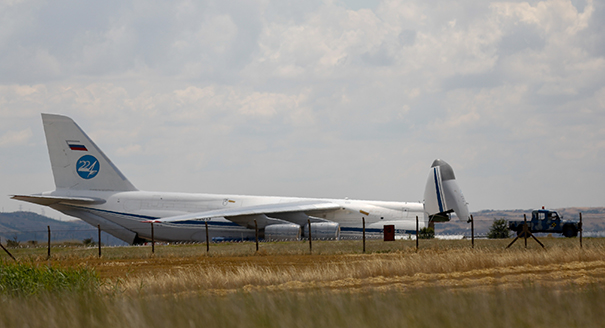Mara Karlin | Former U.S. deputy assistant secretary of defense for strategy and force development, director of strategic studies at the Johns Hopkins School of Advanced International Studies, author of Building Militaries in Fragile States: Challenges for the United States (University of Pennsylvania Press, 2018)
These are complicated times in the U.S.-Turkey relationship. In Ankara, feelings of betrayal caused by the United States’ collaboration with Kurdish forces in Syria and Iraq, coupled with real security concerns and a substantial Syria refugee population, have colored its views. In Washington, uneasiness with Ankara’s decision to accept the Russian S-400 air defense system, despite U.S. efforts to sell Turkey an alternative system to counter air and missile defense threats, only added fuel to frustration over Turkish President Recep Tayyip Erdoğan’s penchant for authoritarianism, increasing cooperation with Moscow, and threats to America’s Kurdish partners.
While Washington and other NATO allies seek to keep Turkey in the North Atlantic alliance, they will face serious challenges in ensuring that Ankara’s membership in the military alliance is meaningful if Turkey’s military can no longer play a role in the F-35, the most sophisticated fighter aircraft on the planet. Mitigating the fallout will be tricky as Turkey is in real danger of being left behind in the military alliance. Its decision to accept the S-400 will have longer-term implications for Turkish interoperability, participation in multinational military exercises, and, potentially, collaboration in future fights. Amid this turmoil, Russia is the real winner. Moscow has masterfully divided NATO and distracted the alliance from focusing on its destabilizing role in Europe and the Middle East.
Ali Özkök | Turkish analyst and political commentator in Turkish, Russian, and European media outlets
A distancing from NATO is meaningful for Ankara for several geopolitical reasons. However, the recent failed offensive in Idlib by the regime of Syrian President Bashar al-Assad proves that Turkey cannot and will not trust Russia unconditionally, despite the rapprochement. The Turkish government defines itself as a bridge between East and West, which its presence in NATO epitomizes. It wants to profit equally from both sides, while increasing its power and taking on a central role in its own regional orbit.
Turkey has thrown off the thinking of the Cold War years, when the world was divided into large blocs. The emergence of new states in the Balkans and the Caucasus has created a great opportunity for Ankara to further its own interests. The Turkish establishment no longer sees Russia as it did the overpowering Soviet Union. Should the United States seriously sanction Turkey for deploying the Russian S-400 air defense system, Washington will only escalate matters. Ankara expects symbolic sanctions, but it is also ready to abandon its relations with Washington over a safe zone in Syria by engaging in unilateral intervention.
Ankara also needs the S-400s to strengthen its air defenses in its competition with a European Union-backed Greece in the race for natural gas around Cyprus. Ankara knows that gas will define Turkey’s economic future and its role as an energy hub alongside Russia for the next 100 years, which will worry the EU.
Henri J. Barkey | Cohen professor of international relations at Lehigh University, adjunct senior fellow for Middle East studies at the Council on Foreign Relations
The arrival of Russian S-400 missiles designed to shoot down NATO warplanes in Turkey has the potential to fracture Ankara’s role in the Western alliance system. This decision is the product of two contradictory sets of Turkish perceptions.
On the one hand, Turkey suffers from a deep sense of insecurity. A review of President Recep Tayyip Erdoğan’s rhetoric at home and the approach of the Turkish press—almost completely controlled by the regime—would characterize the West, and especially the United States, as the primary enemy. This attitude has hardened since the failed July 15, 2016 coup. Turkey’s insecurity is enhanced by having to contend with an aggressive and demanding neighbor in President Vladimir Putin’s Russia. The S-400s are both a message to the West and an offering of sorts to Putin.
On the other hand, Ankara also considers itself to be the West’s single most strategically indispensable ally. The Turks, therefore, believed that Washington would ultimately find a way to accommodate the S-400s because of Turkey’s strategic importance, not to mention because of Ankara’s own very significant contributions to the F-35 production process.
Sinan Ülgen | Visiting scholar at Carnegie Europe in Brussels
Ankara’s decision to purchase the S-400 air and missile defense system from Russia is more indicative of the erosion of trust in the United States’ ability and willingness to help Turkey achieve its national security objectives. So it is essentially the result of a set of grievances topped, first, by Washington’s ongoing support for the Syrian Kurds’ Democratic Union Party, with its ties to the Kurdistan Workers Party that Turkey considers a terrorist organization. And second, by the belief that the United States has been supportive of the Gülen network, which is known to be linked not only to the failed coup attempt of July 2016 but also to the Ergenekon and Sledgehammer cases of previous years, which used fabricated evidence and unsubstantiated claims to purge the top brass of the Turkish military. This decision on the S-400s will inevitably have repercussions for NATO as well, insofar as it undermines Turkey’s belief in solidarity within the alliance. The big winner from this episode is President Vladimir Putin’s Russia, which was able to damage NATO cohesion while getting paid for it.








